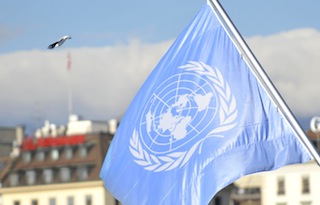Currently, only some of the existing ten treaty bodies have adopted detailed follow-up procedures to assess to what extent States are complying with their recommendations at the national level. As part of the Academic platform on treaty body review 2020, ISHR recently submitted a contribution to the Geneva Academy of International Humanitarian Law and Human Rights, focusing on how UN treaty monitoring bodies can learn from each other in this area.
ISHR’s Director of Treaty Body Advocacy, Vincent Ploton, said the treaty body strengthening process provided a major opportunity to improve the way these bodies share best practices in designing effective tools to follow up on their recommendations and assess levels of implementation.
‘The Committee against Torture’s focus on implementation is pretty unique and innovative among all UN human rights bodies,’ said Mr. Ploton. ‘Fellow treaty bodies and other UN mechanisms, including Special Procedures of the UN Human Rights Council, should draw inspiration from this positive development as they seek concrete changes on the ground’.
The Committee against Torture has become the first UN human rights body to encourage States to systematically adopt implementation plans on recommendations. This constitutes an unprecedented move towards improving the human rights situation at the national and local level.
ISHR’s submission analyses the procedure of the Committee against Torture as well as other follow-up procedures – such as that of the Human Rights Committee, which took a pioneering approach to follow-up and assessment through a grading system. The submission provides a range of suggestions on how to improve the existing follow up procedures within treaty bodies, as well as how fellow treaty bodies and other UN mechanisms could replicate similar methods of work with a view to enhancing their impact on the ground.




